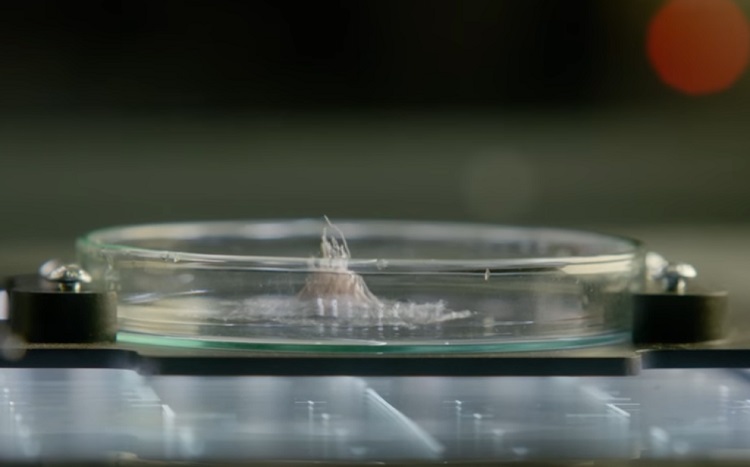We now know that the human body contains at least 52 intelligence genes. This is incredibly important to understanding the specifics of the biology of IQ and why it differs so much from person to person and also why it diminishes when nearing the end of life. During a recent study, researchers used computers to sift through human genome data sets to find variations that could point to disease or traits such as intelligence. The more genomes that are sequenced, the better the computers become at finding patterns in this data, and ultimately, the more we will learn.
But, we have to be careful when approaching this subject as is does lead to some uneasiness in people. Some concerns are that is may be misused by individuals in an attempt to make racial superiority happen. But, as Nature emphasized, “Environment is crucial too. The existence of genes ‘for’ intelligence would not imply that education is wasted on people without those genes. Geneticists burned down that straw man long ago.”
While we will get better at mapping genes that make us smart or sick, it doesn’t mean we’re going to embrace a world of super intelligent humans or designer babies. Most traits are not the result of just a couple of genes; they’re the combination of hundreds or thousands. We may find that there are 1,000 genes responsible for influencing intelligence, and the same can be said for certain disorders like obesity or depression. There is no single gene that will cause these conditions.
Scientists taking part in genome-wide association studies have the benefit of seeing how different combinations of genes interact with one another, The UK Biobank is a library consisting of health, behavioral, and genetic information on 500,000 Britons. For this study, the researchers used genome data from 78,000 individuals who had also taken part in intelligence testing. Using a very intelligent computer program that data was then sifted through to find patterns of areas that correlated to intelligence. Following that study, researchers can now confidently link genes to behaviors.
As part of a recent genome-wide analysis study, out of 52,000 men tested, 250 gene sites were identified that could predict male pattern baldness. Other successes come in the identifying genes that define diabetes, depression, and schizophrenia. These same studies are also being used to analyze genetic associations to life outcomes, and in 2016, 74 gene sites were found to be linked to educational attainment. Even so, the study could only explain 3 percent of the difference in two people when it comes to the level of education the could achieve.
Studies such as these aren’t about predicting how smart a child will grow up to be; they’re more about reverse-engineering the biology of intelligence. Daniella Posthuma is a statistical geneticist at Vrije Universiteit in Amsterdam and senior author of the latest Nature study. She says, “We’re finally starting to see robust, reliable associations from genes with their behavior. The next step is how do we prove that this gene is actually evolved in disorder, and how does it work?”
Posthuma says if we can figure out what genes are causing certain diseases, we can begin to produce tailored treatments. So the more genome data that’s collected, the more helpful it will be. Researchers will soon be able to assign people “polygenic risk scores” that will advise how likely they are to contract a certain disease and allow them to act early.
There are some concerns from people that this genetic data may fall into the wrong hands, especially are signing up for genome services such as those provided by the commercialized company, 23&Me. But, even armed with all this data it wouldn’t be that easy to simply pick up the 52 intelligence genes, throw them together and get America’s Next Top Genius. Genetics is far more complicated than that. Genes interact in various, unpredictable ways. For example, a gene that may increase your intelligence could also increase your risk of contracting schizophrenia or some other disease.
“If you would have to start constructing a human being from scratch, and you would have to build in all these little effects, I think we wouldn’t be able to do that,” comments Posthuma. “It’s very difficult to understand the dynamics. We will never be able to fully predict how a person will turn out based on the DNA.” There are also certain things that genome-wide studies aren’t successful with, and one of those is finding exquisite gene variations.
But that doesn’t mean to say things aren’t going to improve swiftly in the world of genomics as it’s quickly becoming big business. Paul Glimcher is a New York social scientist who intends to recruit 10,000 New Yorkers and track them for decades to come. This will include the person’s medical records, personality test scores, genome data, physical activity, diet, credit card transactions, and more. His intention is to create a huge database of human life that machine learning programs could use to develop themselves further.
More News to Read
- No Time For Visiting Art Galleries? Google Here to Help!!
- Imagining A Dying Milky Way, How Death Of The Milky Way Look Like?
- Another Breakthrough for Cancer Detection in the Form of Liquid Biopsies
- Breakthrough for Scientists Comes in the Form of Another Gravitational Wave
- Is it Possible to See the Edge of the Universe?











